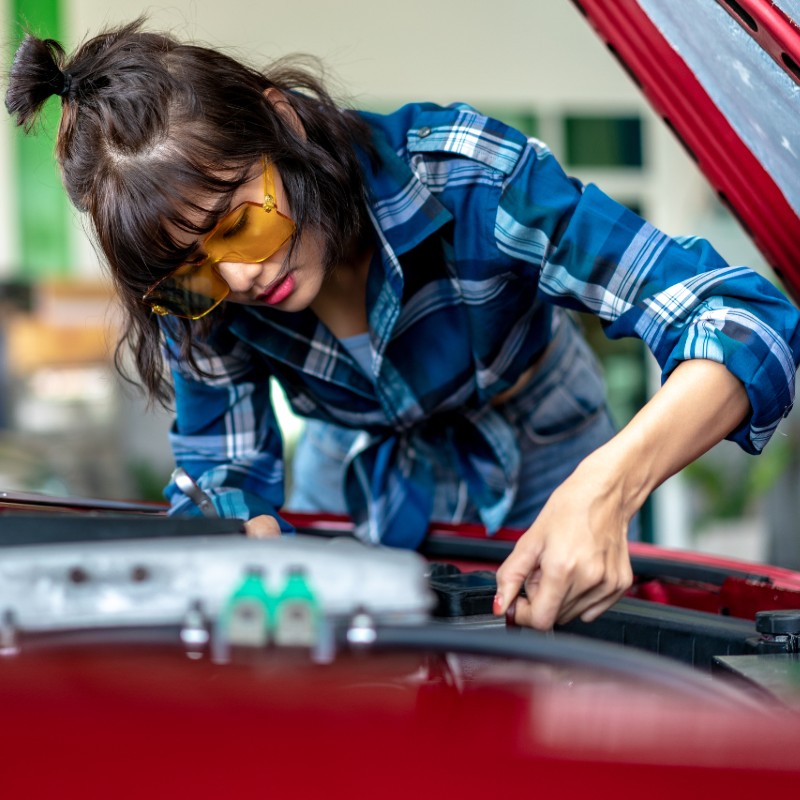Full and proper maintenance of your car is essential – it will help keep you, your passengers and other road users safe, adhere to road traffic law, enhances reliability and may help maintain resale value.
Warning lights
Modern cars have many sensors and systems inbuilt to notify the driver when something on the car needs to be inspected, replaced, topped up or addressed by a mechanic. You should familiarise yourself with the meanings of these message that your car is sending you – some might just be warnings for upcoming services but some may require immediate attention. If lights are ignored it may lead to an increase in repair bills or more substantial damage occurring.
Checking oil levels
Your engine is full of moving parts, if these parts are not correctly lubricated then it may cause damage or overheating – oil is used to keep everything running smoothly. Your own manual will advise you how much oil should be put in your car and how often it should be changed.
It is not uncommon for your car to burn some oil over time, as a result you should frequently check the oil levels of your car. To do this, park your car on a flat surface and remove the oil dipstick from which can be found in the engine bay. Wipe the dipstick clean and re-insert all the way in, when you remove it again you will be able to check the level of oil in your car. If it is below the minimum level it may need to be topped up – if you’re unsure on how to do this or how much to put in you may need to consult a mechanic. If you notice your car is frequently in need of an oil top-up it may indicate an issue with the engine and should be checked by a mechanic.
Replace filters regularly
The filters in your vehicle keep everything running smoothly – particularly your engine – by catching dust, dirt, impurities and contaminants.
The fuel filter, oil filter, engine air filter and cabin air filter all serve an important purpose and hence should be changed at regular service intervals. Your owner manual should advise how regularly your filters should be changed. If your cars filters are overdue a change you might even notice an improvement in your cars performance and efficiency following the filters being changed.
Tyres
- Tyres should be checked every 2-4 weeks or before a long journey.
- Ensure that the pressure is in line with the manufacturer’s guidelines – having it too high or too low can lead to uneven wear meaning you’ll need to replace them more often. Over-inflation will lead to the centre of the tyre wearing faster than the outsides and under-inflation will lead to the outsides wearing faster than the centre. Under-inflation can also decrease your fuel efficiency.
- Minimum legal tyre tread depth for a passenger vehicle in Ireland is 1.6mm, this should be measured with a tread depth gauge or checked by an authorised tyre supplier.
- Most tyres display a wear bar that runs across the tyre from side to side. These are 2mm high and help to indicate when the tread is low and should be replaced. Replace your tyre as soon as you see this bar and preferably before it becomes visible.
